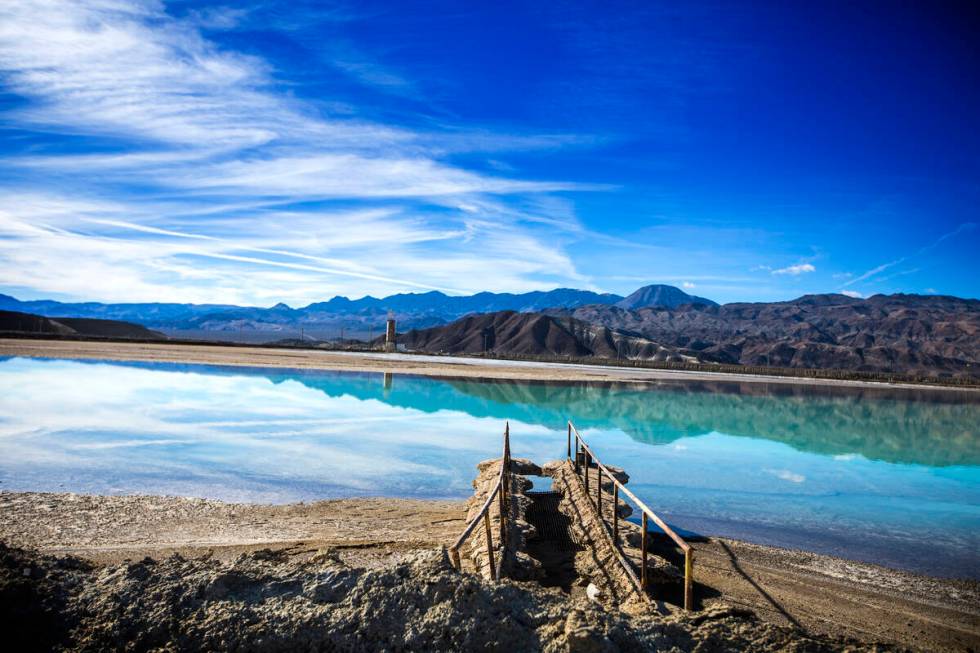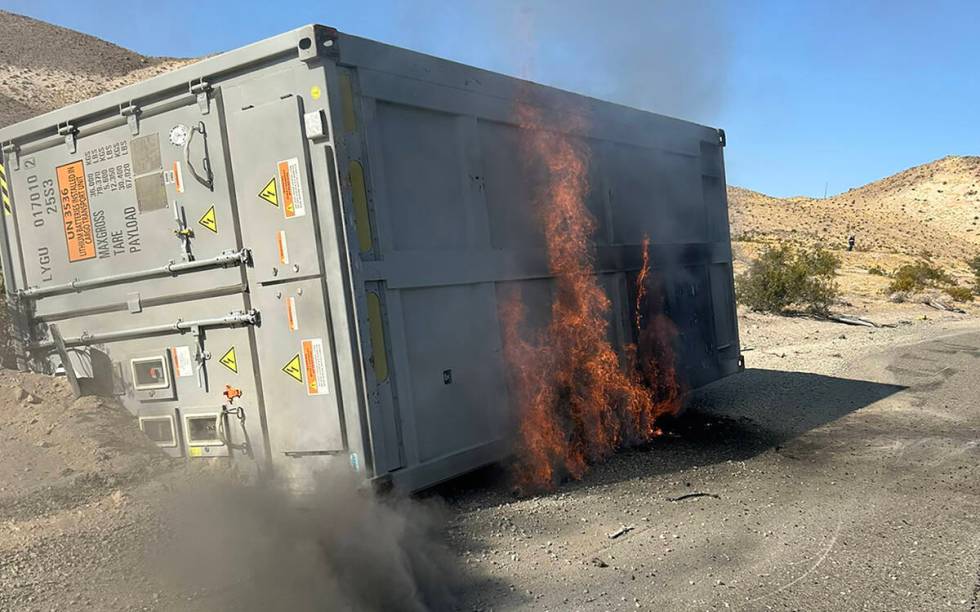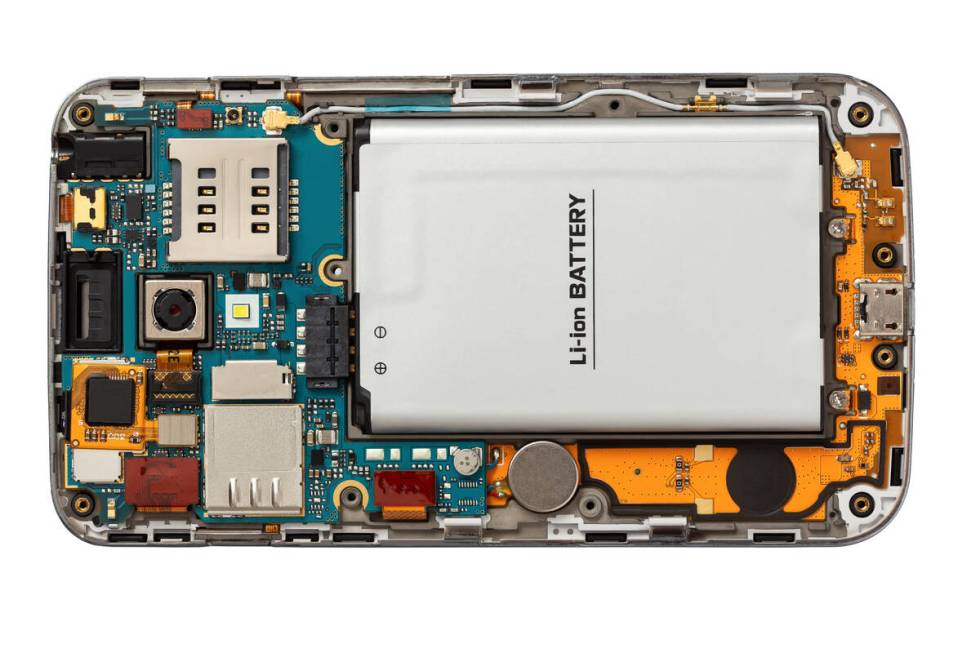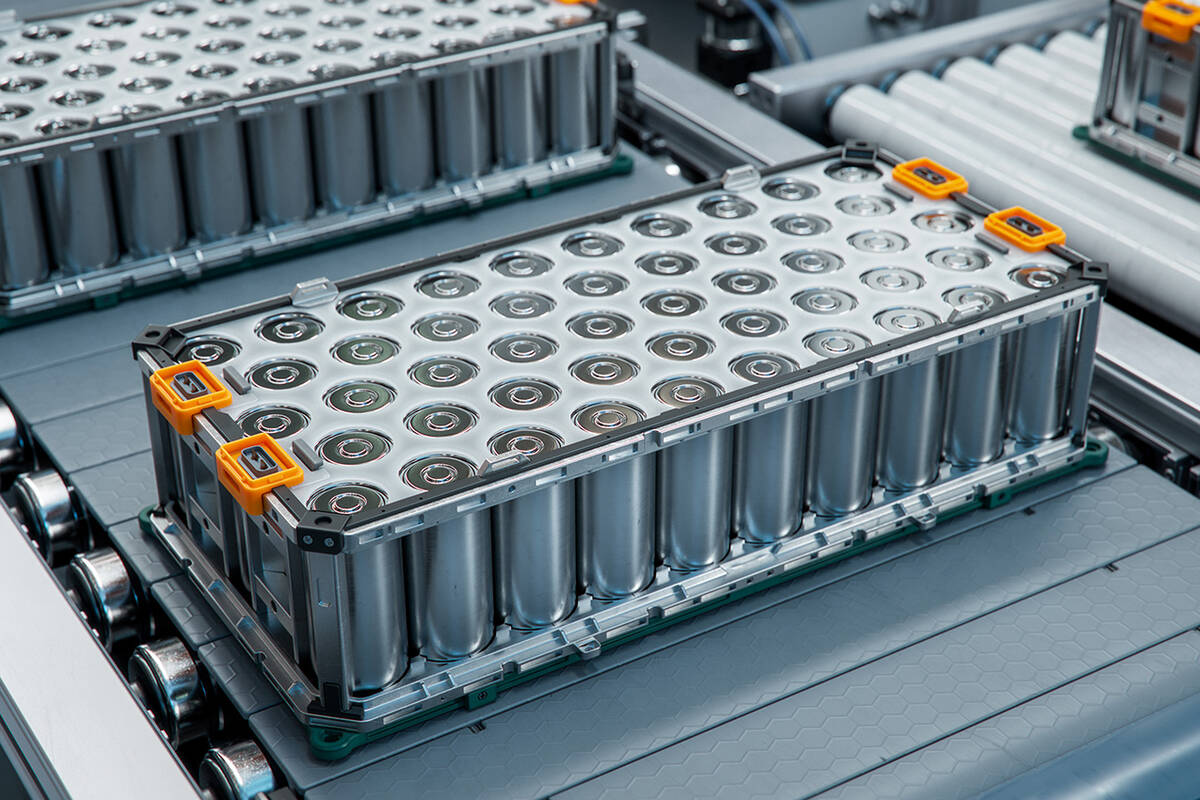Everything you should know about lithium batteries and their role in Nevada
Transportation disasters related to lithium-ion batteries are becoming more common in Southern Nevada.
A bill centering how to better regulate the transportation of these flammable batteries was introduced by U.S. Rep. Dina Titus, D-Nev., amid calls to prevent another fire.
What Nevadans may not know is how these batteries represent the last stage of production for a booming lithium mining industry that has the Silver State at the helm.
As you follow continued coverage, here’s what you should know about these dangerous, but lucrative batteries.
1. Lithium is a ‘critical mineral’ needed to combat climate change
Producing these batteries is crucial to the electric vehicle market. Increasing use of EVs is said to be a solution to climate change, slashing the country’s carbon emissions that scientists say are warming the planet.
The U.S. Interior Department lists lithium as one of 50 so-called “critical minerals” that are needed to facilitate the country’s transition to greener sources of energy — a priority of the Biden-Harris administration.
2. Nevada is the epicenter of an emerging domestic supply chain
Almost all of the world’s lithium production happens outside the U.S. in countries such as Australia and Argentina.
But Nevada has the only active lithium mine in the country at Silver Peak in Esmeralda County, with more on the way. There’s been a push to close the so-called “lithium loop” in Nevada, allowing all stages of the production of lithium batteries to take place within state lines, from mining to recycling.

These mines are often at odds with the state’s limited water resources, many endangered and threatened species, and Native American heritage sites. That conflict has caused lawmakers and environmentalists to push for more sustainable locations and mining techniques.
3. The batteries are highly flammable and can emit toxic gas
There’s a reason passengers aren’t allowed to take lithium-ion batteries on airplanes.

Because they store a lot of energy in a small space, they very easily overheat and can catch fire, emitting toxic gases such as hydrogen fluoride and carbon monoxide, according to the National Fire Protection Association. Crews were seen in hazmat suits on the scene of the I-15 fire, likely because of the presence of toxic gas.
4. Outside of EVs, many purposes
Lithium-ion batteries aren’t just what power EVs.

They’re in your iPhone, laptop, digital camera, watches and more. They’re also found in power tools, wireless headphones and electric toothbrushes. In this decade, you’d be hard-pressed to avoid them all together.
5. Recycling them responsibly vital
One of the most important aspects of using lithium-ion batteries is disposing of them properly.
To minimize harm to the environment, they should never be thrown away with household garbage, according to the EPA. There are many options to dispose of them safely in Las Vegas, and Earth 911’s search tool can identify those closest to you.
Contact Alan Halaly at ahalaly@reviewjournal.com. Follow @AlanHalaly on X.


















